AI Search Basics: What It Is & How It Works
What is AI Search?
If you're here, you've probably noticed something: AI is changing how people find information online. Let's understand what's actually happening under the hood.
How People Search Has Changed
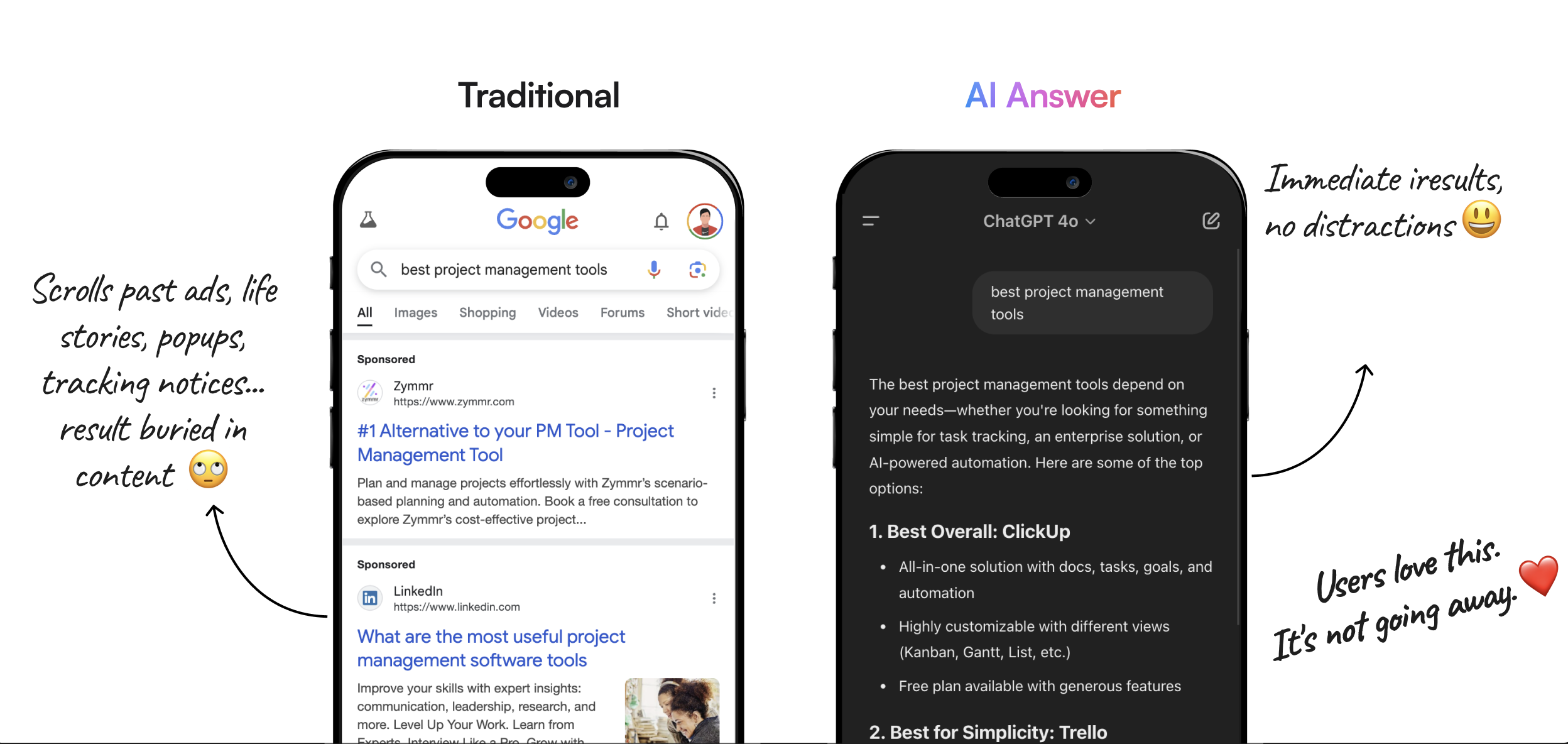
Traditional Google Search:
- User types keywords: "CRM software" (2-3 words)
- Google shows 10 blue links
- User clicks one
- You track the visit
AI Search:
- User asks: "What's the best CRM for a 10-person remote marketing team that integrates with Slack?"
- AI reads multiple sources
- Creates one synthesized answer
- Maybe mentions you, maybe doesn't
- You might never know
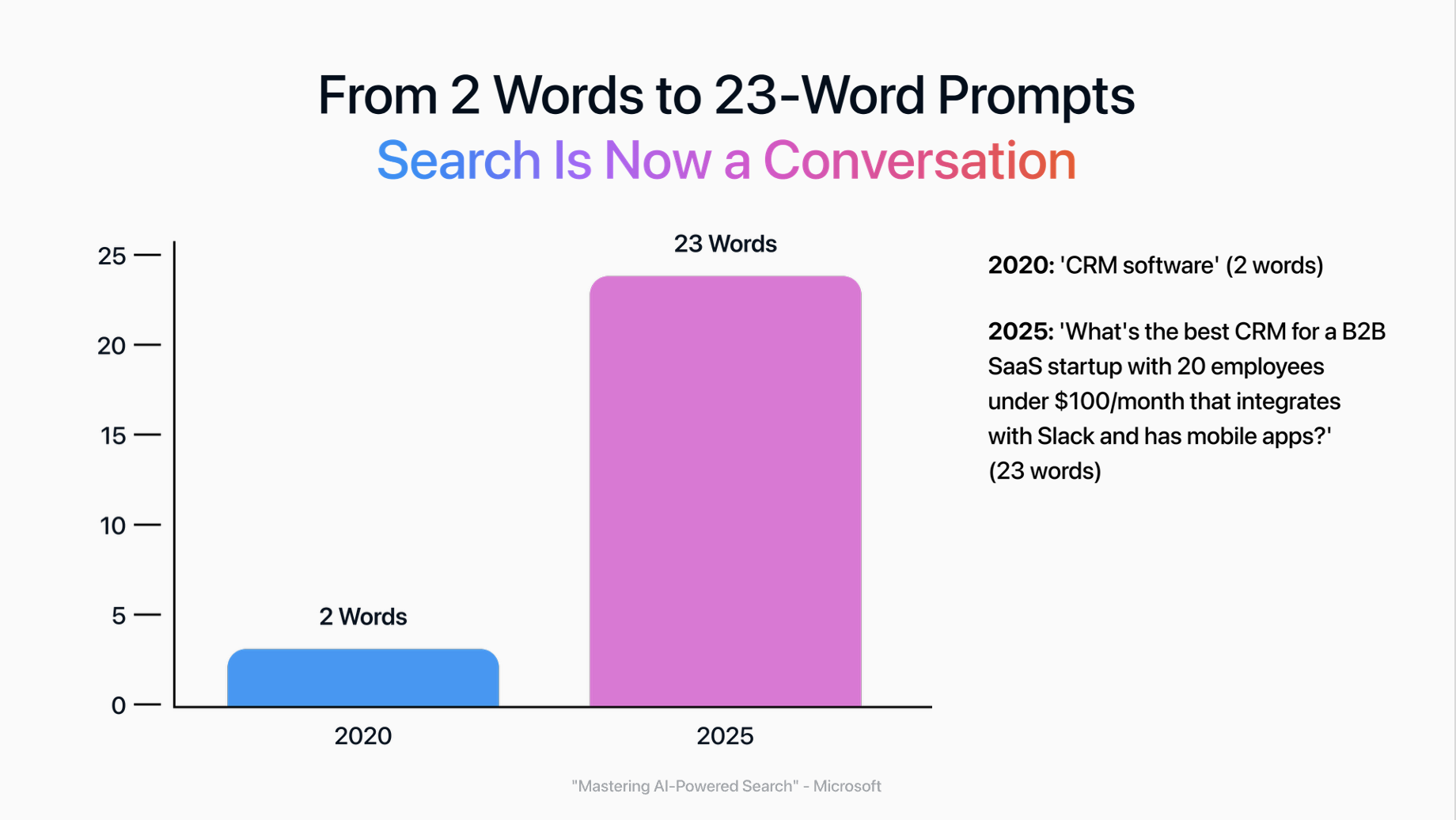
People don't type keywords anymore. They have conversations. They provide context. They expect personalized answers.
How AI Search Actually Works (RAG)

AI search uses Retrieval Augmented Generation (RAG) to provide answers.
Here's what happens step by step:
1. Question Analysis
- AI understands what you're really asking
- Identifies key entities, intent, and context
- Expands the question to capture related concepts
2. Document Retrieval
- Searches pre-built web indexes (not the live web!)
- Uses vector search to find semantically similar content
- Retrieves relevant passages from multiple sources
3. Content Evaluation
- Judges quality, relevance, and authority of sources
- Filters out low-quality or outdated information
- Prioritizes trusted domains and recent content
4. Answer Generation
- Synthesizes information from selected sources
- Creates coherent response in natural language
- Decides whether to include citations (usually doesn't)
5. Learning
- Improves from user feedback and interactions (remember the thumbs up/down buttons next to ChatGPT answers?)
- Adjusts ranking and selection algorithms
- Updates understanding of what makes good answers
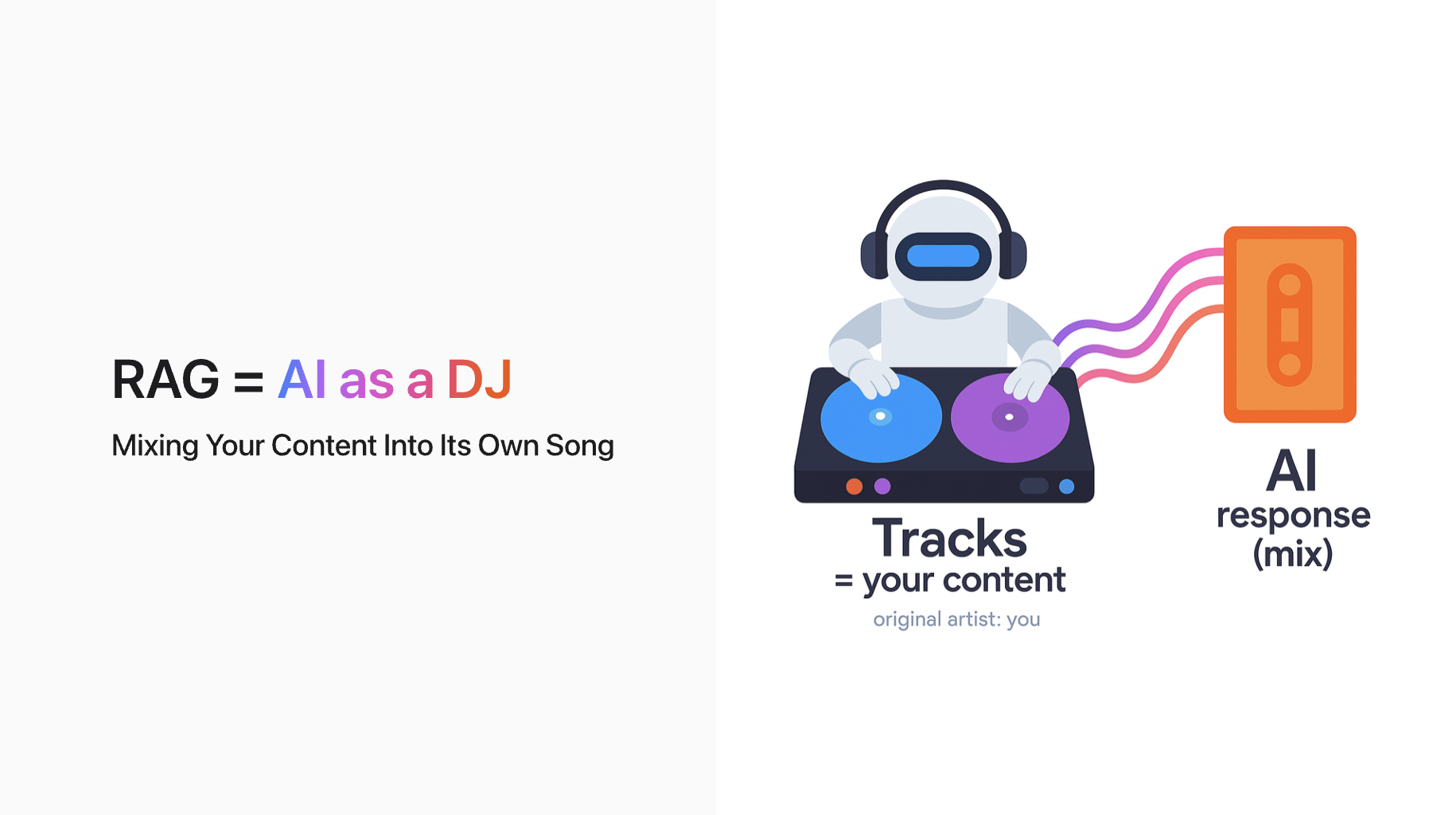
Think of it like a DJ mixing tracks - AI pulls content from different sites and mixes it into one answer. But most of the time, it forgets to credit the original artists.
Where AI Gets Its Information
Critical insight: AI doesn't crawl the live web. Each platform uses different pre-built indexes:
| Platform | Index Source |
|---|---|
| ChatGPT | Bing + proprietary |
| Perplexity | Google's index |
| Claude | Own crawled data |
| Google AI Overviews | Google's index |
| Gemini | Google's index |
This means your brand new content won't appear immediately - it needs to be indexed first by the underlying search engine.
Google's Query Fan-Out Method
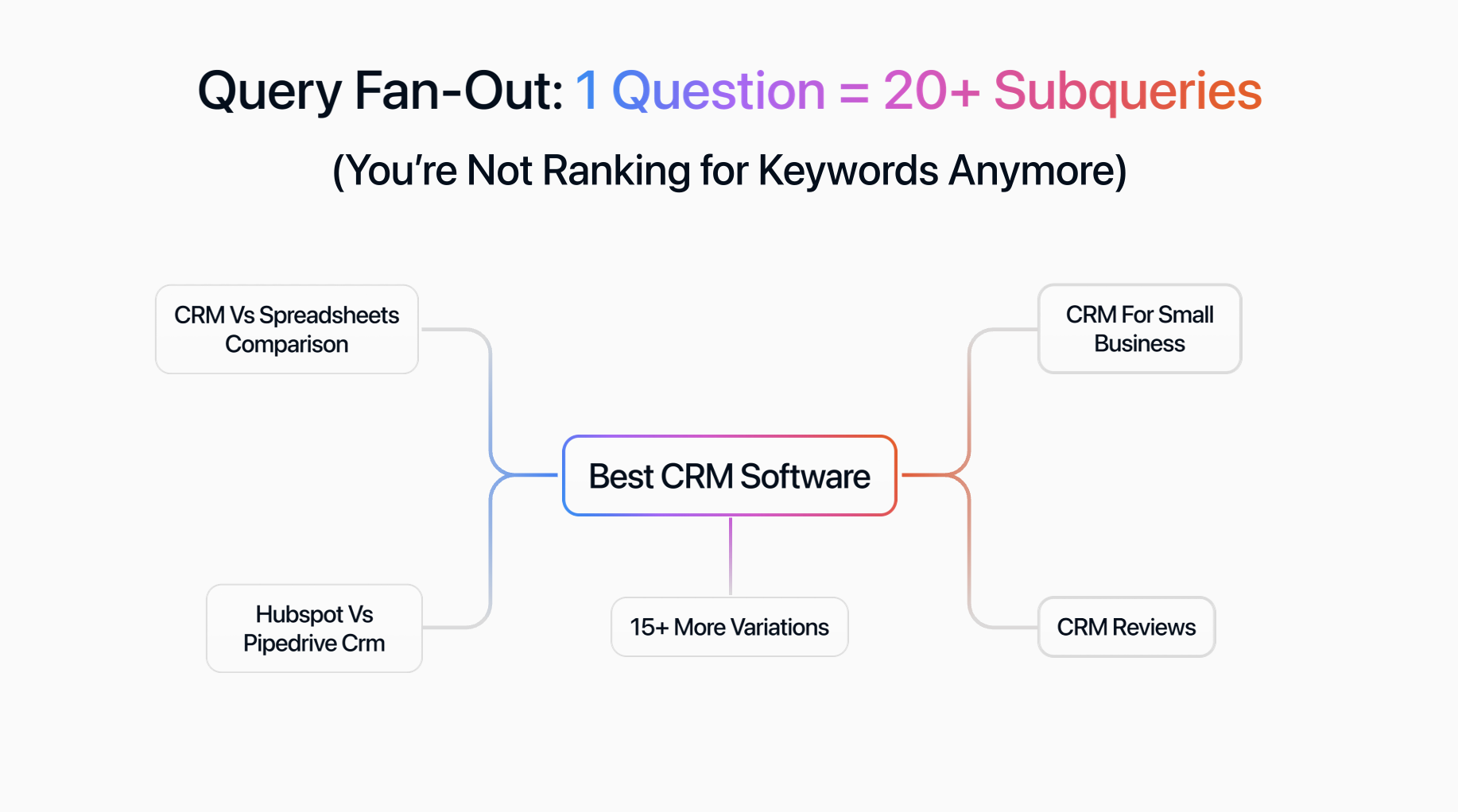
Google AI Overviews and the upcoming AI Mode do something unique - they expand one query into many.
When someone searches "best CRM software," Google AI generates 20+ related searches behind the scenes:
- CRM pricing comparison
- CRM features for small teams
- CRM integration capabilities
- CRM user reviews
- CRM setup complexity
- CRM customer support quality
Your content ranking #50 for the main term might rank #2 for "CRM API capabilities" and get included. This is why comprehensive content wins - you need to match the entire query universe, not just one keyword.
When AI Decides to Search
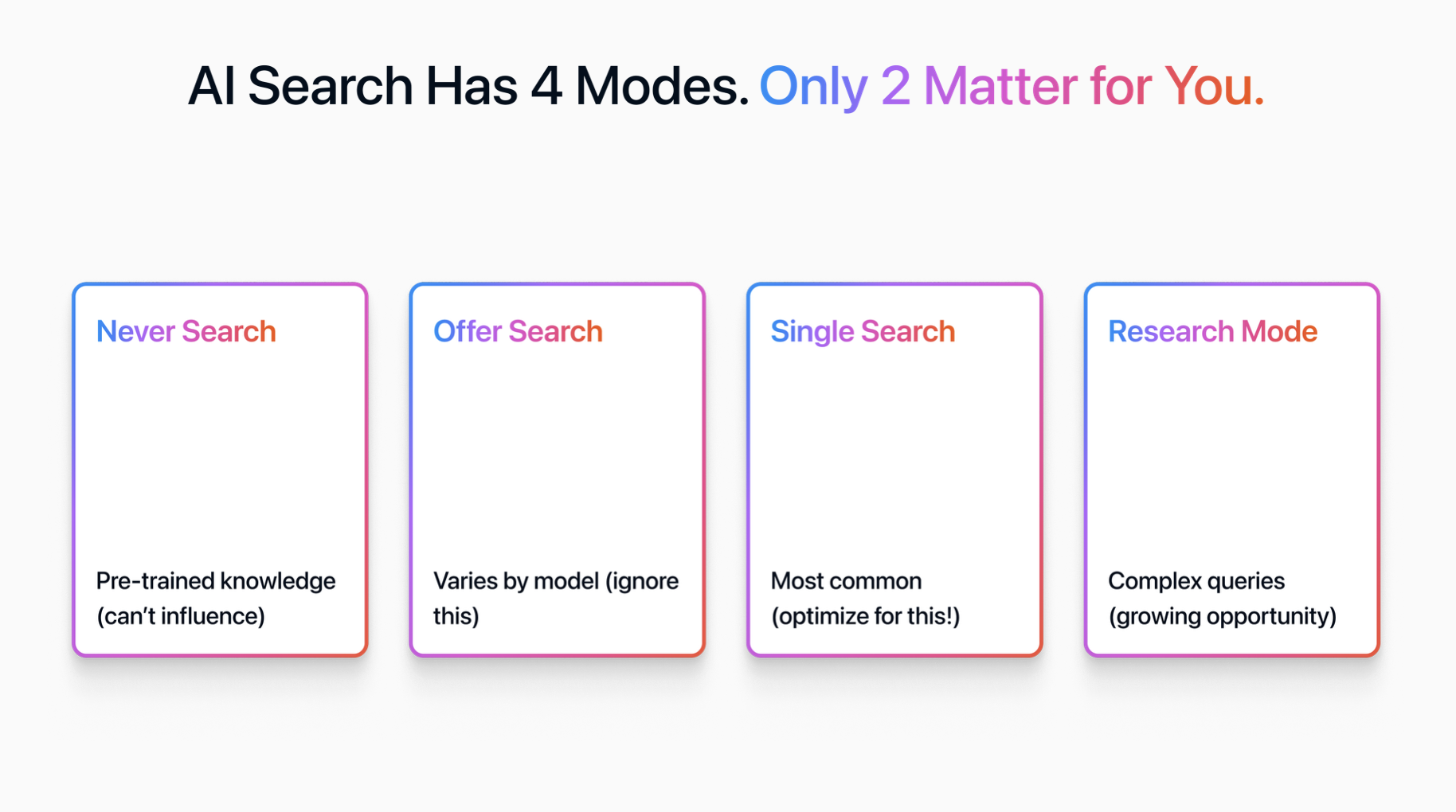
Based on leaked Claude documentation, AI has 4 search modes:
- Never Search - Uses pre-trained knowledge (you can't influence this)
- Offer Search - Varies by model (unpredictable)
- Single Search - Most common, handles 80% of queries (your main opportunity)
- Research Mode - Complex queries needing 2-20 searches (growing opportunity)
Focus your efforts on Single Search and Research Mode - these are where you can actually make an impact.
What's Different About AI Search
Key Differences from Traditional SEO
| Aspect | Traditional SEO | AI Search (GEO) |
|---|---|---|
| User Input | Keywords (2-3 words) | Prompts (15-25 words) |
| Goal | Rank in top 10 | Get mentioned at all |
| Competition | 10 spots on page 1 | Unlimited mentions possible |
| Traffic | Direct clicks | Brand awareness → searches |
| Updates | Monthly algorithm changes | Daily volatility |
| Trust Signals | Backlinks | Third-party mentions |
Now that you understand how AI search works differently, let's learn the new vocabulary you'll need to navigate this world - from prompts to citations and everything in between.
Updated 8 months ago
